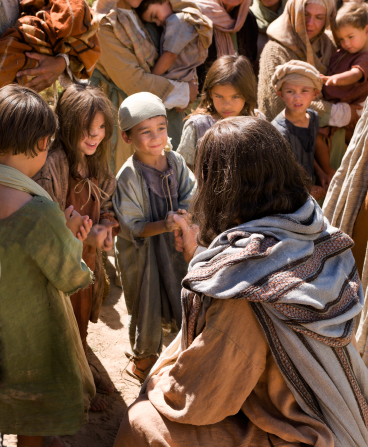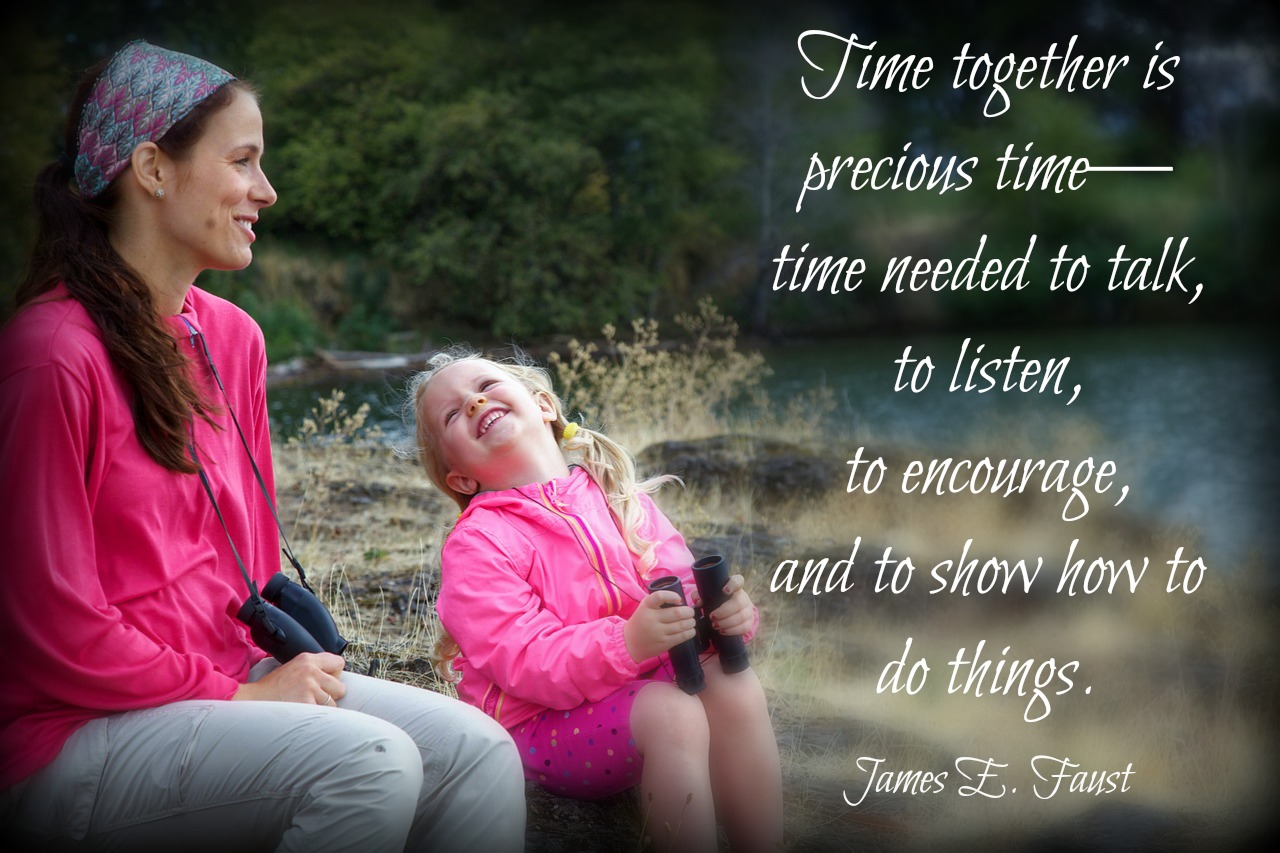Sometimes it’s startling to discover the kinds of things to which my kids are exposed. I received a group email from a concerned parent telling us about a suicide dare circulating in a high school on the other side of the state that stemmed from the Netflix series “13 Reasons Why.” At least two teenagers took the challenge, with tragic consequences. I have never heard of this series and knew nothing about it. So I asked my 12-year-old if she had ever heard it, and she said, “Of course.” Um, what? She said that a friend of hers is reading the book and she read the back cover. It is about a girl who commits suicide and leaves 13 notes to different people explaining why. It is apparently graphic and violent, and I will most likely not watch it (nor allow my kids to see it).
After reading about it, one thing became very clear to me: I need to be better about communicating with my kids. Communication is an essential part of any relationship. The relationship parents have with their kids, siblings have with each other and the one we have with God. Sister Rosemary M. Wixom said,
In a perfect world every child would return home from school to be greeted with a plate of freshly baked chocolate chip cookies, a tall glass of cold milk, and a mother ready to take the time to talk and listen about her child’s day. We do not live in a perfect world, so you can skip the cookies and the milk, if you like, but don’t skip the “take the time to talk and listen.”
I can come up with 13 reasons—and then some—why I should talk to my kids. If you really want to read them, I’ll list them at the end. But before I get to that, I think it’s important to understand why communication is important with our kids—and how we can improve it.
Communication Creates a Bond
We begin communicating with our kids when they are born. They cry, and we as parents take care of their needs. Then they learn to smile and we smile back. We coo and talk to them, and they coo back. All the while, we are creating a bond. Sister Wixom said,
As we spend time together and talk with our children, we come to know them and they come to know us. Our priorities, the real feelings of our heart, will become a part of our conversation with each child.
President Dieter F. Uchtdorf taught,
… We must place high priority on our families. We build deep and loving family relationships by doing simple things together, like family dinner and family home evening and by just having fun together. In family relationships love is really spelled t-i-m-e, time. Taking time for each other is the key for harmony at home. We talk with, rather than about, each other. We learn from each other, and we appreciate our differences as well as our commonalities. We establish a divine bond with each other as we approach God together through family prayer, gospel study, and Sunday worship.
This bond is strengthened when we communicate in Christlike ways, but it is weakened when we don’t. Elder L. Lionel Kendrick said,
Our communications reflect in our countenance. Therefore, we must be careful not only what we communicate, but also how we do so. Souls can be strengthened or shattered by the message and the manner in which we communicate.
Christlike Communication
Jesus Christ taught us many things when He was on the earth—not the least of which was how to communicate. Elder Kendrick said,
Christlike communications are expressed in tones of love rather than loudness. They are intended to be helpful rather than hurtful. They tend to bind us together rather than to drive us apart. They tend to build rather than to belittle.
Christlike communications are expressions of affection and not anger, truth and not fabrication, compassion and not contention, respect and not ridicule, counsel and not criticism, correction and not condemnation. They are spoken with clarity and not with confusion. They may be tender or they may be tough, but they must always be tempered.
How we communicate with each other is also often a reflection of how we feel about the person with whom we are communicating. Elder Kendrick continued,
The real challenge that we face in our communications with others is to condition our hearts to have Christlike feelings for all of Heavenly Father’s children. When we develop this concern for the condition of others, we then will communicate with them as the Savior would. We will then warm the hearts of those who may be suffering in silence. As we meet people with special needs along life’s way, we can then make their journey brighter by the things that we say.
Sister Wixom said,
One of the greatest influences a person can have in this world is to influence a child. Children’s beliefs and self-worth are shaped early in their lives. Everyone within the sound of my voice has the power to increase a child’s confidence in himself or herself and to increase a child’s faith in Heavenly Father and Jesus Christ through the words they speak.
Beware ‘Corrupt Communication’
Life is hard and challenging, and sometimes it’s easy to get caught up in the stressors. Elder W. Craig Zwick cautioned,
Paul warned, “Let no corrupt communication proceed out of your mouth, but [only] that which is good [and] edifying, that it may minister grace unto the hearers” (Ephesians 4:29). His words resonate with a certain purity.
What does the phrase “no corrupt communication” mean to you? We all regularly experience highly charged feelings of anger—our own and others’. We have seen unchecked anger erupt in public places. We have experienced it as a sort of emotional “electrical short” at sporting events, in the political arena, and even in our own homes.
Children sometimes speak to beloved parents with tongues as sharp as blades. Spouses, who have shared some of life’s richest and most tender experiences, lose vision and patience with each other and raise their voices. All of us, though covenant children of a loving Heavenly Father, have regretted jumping headlong from the high seat of self-righteous judgment and have spoken with abrasive words before we understood a situation from another’s perspective. We have all had the opportunity to learn how destructive words can take a situation from hazardous to fatal.
One source of this corrupt communication is not seeing things from the perspective of the other person. I remember getting upset at one of my daughters for something that she did, and in tears she replied, “But I was trying to help you, Mom.” I felt terrible. I wasn’t looking at things from her point of view.
Other Forms of Corrupt Communication
Any time we treat another person in an un-Christlike way, we are communicating in a “corrupt” manner. Elder Kendrick said,
There are certain kinds of un-Christlike communications which destroy relationships and are not for our development but are for our destruction. … One of the major ways that Satan uses to retard the development of righteous relationships is in the use of gossip, rumor, and slander on his communication network. Perhaps the more common un-Christlike communications are those of lying, blaming, criticizing, and anger.
Each of these is destructive in its own way. Elder Kendrick continued,
It is a serious sin to lie. The scriptures teach us that “lying lips are abomination to the Lord” (Proverbs 12:22)…. They also teach us that to lie about a person is a form of hatred, for “a lying tongue hateth those that are afflicted by it” (Proverbs 26:28). … Integrity is the core of our character. Without integrity we have a weak foundation upon which to build other Christlike characteristics.
Another form of un-Christlike communication that shows a lack of integrity is blame. Elder Kendrick said,
This is a condemning communication. … It has been from the beginning and it will be till the end that the natural man will have a tendency to rationalize and to blame his behaviors on others or on certain circumstances. When we attempt to place responsibility for our choices on others, we are responding in a less than Christlike manner.
Anger and Negative Criticism
Anger and negative criticism are also destructive forms of communication. Elder Kendrick continued,
Positive criticism is feedback given with the purpose of helping another person to grow and to develop. This is both helpful and needful and is generally accepted and appreciated.
Negative criticism is intended to hurt and often to defame and to destroy. This caustic communication is cruel, and it tends to crush the character of all of those about whom it is directed. …
Anger causes anguish to the souls of all of those who experience the feeling as well as to those who are the recipients of this emotional explosion.
Anger shows a lack of self-control and an inability to relate in a righteous way to others. It is a senseless substitute for self-control. It is sometimes used as a selfish strategy to gain control of a relationship. President Wilford Woodruff counseled that “the moment a man or a woman becomes angry they show a great weakness” (In Journal of Discourses, 4:98).
When we communicate in any of these destructive ways, we can harm or even destroy our relationships with others. Anger is one of the easiest emotions. Often, it is a mask for hurt, frustration or disappointment. When we react in anger to our kids, we are at our weakest. Especially when we respond in kind when our children are angry at us. And when we do, we miss out on an opportunity to teach our kids.
Teaching Our Kids
It’s easy to get angry and frustrated with our kids when they are acting out. The tougher thing to do is to look beyond that to what they are really trying to tell us. Brad Wilcox, a professor of education at Brigham Young University, explained,
Do you love me? Do you care? Am I a priority in your life? Such questions rarely come directly from children, but they do come. Often, the most important part of communication is to hear what isn’t being said. Children’s emotions and needs are usually expressed in coded messages that we must receive and interpret.
Remember when your child was a baby? He cried, and you didn’t know why. You thought, I wish he could just talk to me and tell me what he wants! As children get older, they still don’t know how to voice needs clearly. They just give off signals, and you have to figure out what they really need. In their own way, they may still be crying—only now, the tears are inside.
We all have emotions—good and bad. The test of mortality is learning to control them. My two oldest kids have been battling concussions. And sometimes the battle spills over into our home and explodes. But both kids have been going to speech (or cognitive) therapy. One of the biggest benefits that I have seen from this is that the therapist is helping them to become more self-aware. If they are angry, why? What caused it? They are encouraged to keep a journal so that they can find patterns in their behaviors and what triggers their headaches and symptoms. In turn, they are learning how to communicate their needs to me. And I am (hopefully) getting better at listening to them.
Learning to Listen
I have discovered through this process with my older kids that I’m great at talking but not so great at listening. Talking without stopping to listen is pretty much like having a one-sided conversation. And that is not only not fun but is also not informative. Sister Wixom taught,
Listening is just as important as speaking. Elder Jeffrey R. Holland of the Quorum of the Twelve Apostles said: “If we listen with love, we won’t need to wonder what to say. It will be given to us … by the Spirit.”
When we listen, we see into the hearts of those around us. Heavenly Father has a plan for each of His children. Imagine if we could get a glimpse of the individual plan for each of our children. What if we could know how to enhance their spiritual gifts? What if we could know how to motivate a child to reach his or her potential? What if we could know how to help each child transition from childlike faith to testimony?
How can we know?
We can begin to know by listening.
Listening shows that we care, that we are interested in what they have to say and in how they are feeling. In our relationships—especially with our kids—love is spelled T-I-M-E. Sister Wixom said,
It takes time to focus on the things that matter most. Talking, listening, and encouraging do not happen quickly. They cannot be rushed or scheduled—they happen best along the way. They happen when we do things together: work together, create together, and play together. They happen when we turn off media, put down worldly distractions, and focus on each other.
Now, that is a difficult thing to do. When we stop and turn everything off, we must be prepared for what will happen next. At first the silence may be stifling; an awkward sense of loss may ensue. Be patient, wait just a few seconds, and then enjoy. Give your full attention to those around you by asking a question about them and then begin to listen. Parents, talk about an interest of your child. Laugh about the past—and dream about the future. Silly conversation can even unfold into a meaningful discussion.
And meaningful discussions help to forge the bonds of love and trust that strengthen our relationships.
13 Reasons Why You Should Talk With Your Kids
There are so many reasons that we should talk with our kids—not just to them. When we talk to our kids, we get to know them. We get to know who their friends are, what books they like to read and which movies they like to watch. The reasons why also help provide the what. Do our kids know how much we love them? What do we want them to know? What things will help to prepare them to go out into the world and be successful people? What do they need to know to get through the challenges of life? So, here are my 13 reasons why I should talk with my kids:
Because I love them.
Because Heavenly Father and Jesus Christ love them.
Because they are important.
Because they have a work to do here on earth.
Because they can talk to me about anything.
Because together we can work through anything.
Because what they watch, listen to and read affects them.
Because I want to make sure that they are OK.
Because I want to know what they like.
Because I want to know what they don’t like.
Because I want to know how things are going with their friends.
Because I want to know how their grades are.
Because I want to know what their teachers are like.
As Elder W. Eugene Hansen said,
… Strong family relationships don’t just happen. It takes time. It takes commitment, it takes prayer, and it takes work.
But all of that effort is worth it when we focus on what matters most.









